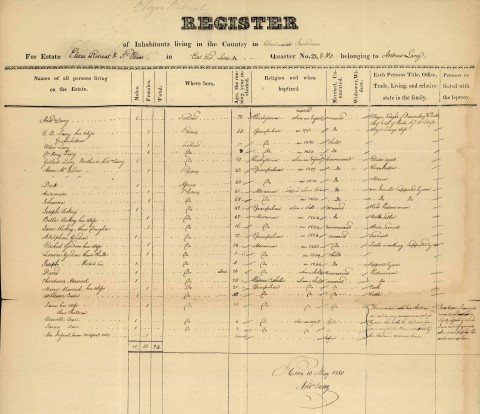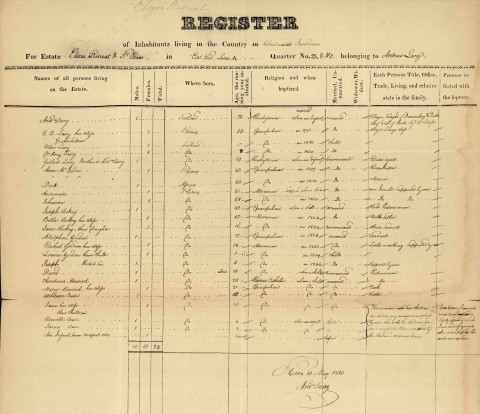LEHI, Utah & SAN FRANCISCO--(BUSINESS WIRE)--Ancestry®, the global leader in family history and consumer genomics, today announced the launch of its new Community Impact Program, which aims to mobilize Ancestry resources and products to build more connected and resilient communities through preserving at-risk history and empowering the next generation of history makers.
Research shows that family history is a powerful tool for building resilience, connection and understanding among all ages, and Ancestry is committed to helping even more people unlock their pasts--so we can realize our shared humanity and build a stronger society. Ancestry is fulfilling its commitment through key education programs and preservation initiatives.
Empowering the Next Generation of History Makers
For nearly a decade, Ancestry has offered access to historical record collections and content through its no-cost AncestryK12® program for K-12 schools nationwide to help students personally connect to and learn from history. Today, 5 million students have access to Ancestry in their classrooms. To expand the impact of this program, Ancestry has partnered with Facing History and Ourselves - a global organization dedicated to empowering teachers and students to think critically about history - to develop a robust collection of resources for educators. The classroom resources, professional learning tools for educators, and Ancestry historical record collections will cover topics including: Race, Slavery & Reconstruction, Immigration, World War II & the Holocaust, and The Power of Identity. These materials will help teachers educate their students on these important topics and use lessons from history to help them learn more about themselves, navigate the world, and become more resilient.
Educators can visit AncestryK12 at www.ancestryk12.com/k12/Resources/ to access these new educational materials and apply for AncestryK12 access for their school or classroom at https://www.ancestryk12.com/k12/GrantProgram/.
Additionally, Ancestry has made a donation to Facing History and Ourselves to support their crucial work of helping millions of students around the world use lessons from history to better stand up to bigotry and hate.
“It is more important than ever that students understand critical periods in history, as well as the choices that created them,” said Roger Brooks, President and CEO of Facing History and Ourselves. “Our partnership with Ancestry will invite students to bring both their minds and hearts to the study of history, and galvanize the next generation of history makers to shape more connected and resilient communities.”
Preserving At-Risk History
A key initiative of the Ancestry Community Impact Program is digitizing and preserving at-risk history - unique record collections about a specific time in history that is at risk of being forgotten or overlooked. Ancestry has already made millions of these records available for free, including its Holocaust and Nazi Persecution collections. To continue this philanthropic effort, today Ancestry announced the release of the new Danish West Indies collection.
This collection of more than 1 million birth, death, marriage, census, labor, and plantation records from 1724 - 1916 provides unique insight into the lives of Black people who were enslaved, and then legally free, in the Danish West Indies. Through a partnership with the Danish National Archives, the records in this collection will now be indexed, fully searchable, and accessible to anyone for free.
These records provide insight into the challenging elements of this period, such as the harsh labor conditions that accompanied enslavement. However, they also illuminate many overlooked histories, such as what faiths were observed and other cultural and social traditions in the West Indies.
“The Danish West Indies were a pivotal part of the transatlantic slave trade and the records within this collection can offer important clues for the Black community working to trace their history and better understand their ancestors' experiences,” said Allan Vestergaard, Head of Division at the Danish National Archives. “We are happy to be working with Ancestry to provide more access to these records to more people than ever before. The common goal is to help break down some of the barriers for people seeking information about their families.”
To view this new collection, please visit ancestry.com/blackhistory.
“For more than 30 years, Ancestry has helped millions of people around the world discover and share their family stories,” said Deb Liu, Ancestry CEO. “Family is more important now than ever, and Ancestry’s new Community Impact Program will help accelerate the important work of building a more connected, understanding and resilient world.”
About Ancestry®
Ancestry®, the global leader in family history and consumer genomics, empowers journeys of personal discovery to enrich lives. With our unparalleled collection of more than 27 billion records and over 18 million people in our growing DNA network, customers can discover their family story and gain a new level of understanding about their lives. For over 30 years, we’ve built trusted relationships with millions of people who have chosen us as the platform for discovering, preserving and sharing the most important information about themselves and their families.




